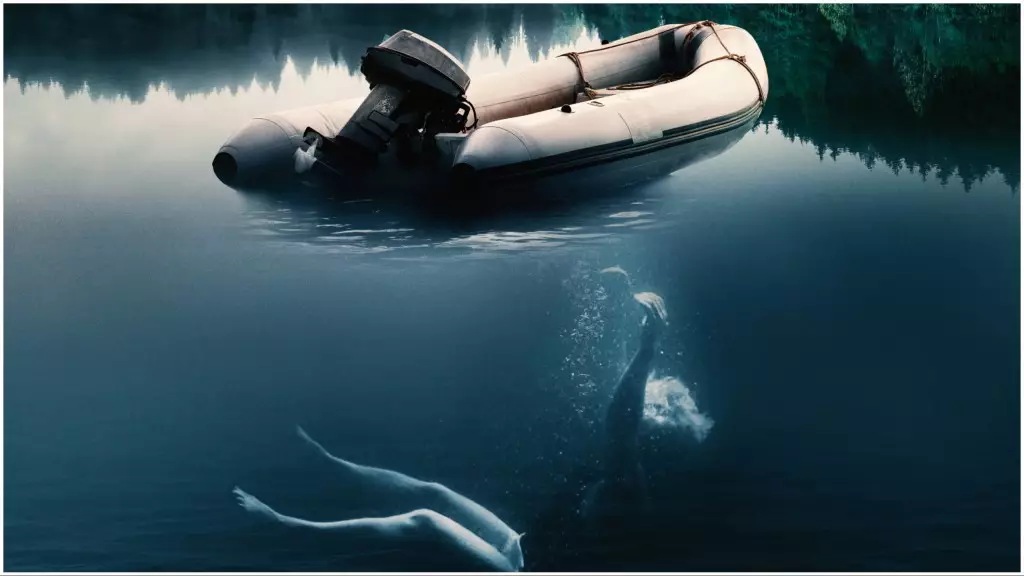In recent years, true crime documentaries have captivated audiences, weaving intricate tales that transcend simple narratives of crime and punishment. One of the latest entries into this deeply resonant genre is *In Cold Water*, a gripping docuseries set to premiere on Prime Video and Sky New Zealand. The series chronicles the tragic case of Laura Letts-Beckett, a schoolteacher who drowned while on a fishing trip in the Canadian Rockies. What makes this narrative particularly compelling is not just the act of crime itself, but the complex implications surrounding trust, heartbreak, and the chaotic workings of the justice system.
At the heart of this docuseries is Peter Beckett, Letts-Beckett’s husband, whose larger-than-life persona adds a layer of complexity to the investigation. Arrested years after the incident and charged with his wife’s death, Beckett’s claims and actions serve as the focal point for exploration and examination throughout the series.
The first-hand account from Peter Beckett, as depicted in an exclusive clip, presents a story laden with emotional turmoil. He recounts the moments leading to his wife’s tragic drowning, describing the traumatic splash and his frantic attempt to rescue her. Beckett’s vivid recollection includes the chilling sensation of saltwater and the intimate detail of his wife’s bright yellow shorts appearing in an icy lake. However, his portrayal raises several questions that challenge its veracity.
Retired Canadian police officer Jacquie Olsen’s skepticism introduces a critical lens through which viewers might interpret Beckett’s narrative. Her assertion that “his story did not make sense” serves as a crucial counterbalance, urging the audience to dissect Beckett’s account deeply. This is pivotal in a true crime story, where the subjective nature of eyewitness testimonies can lead to deeply entrenched perceptions of guilt or innocence.
Pablo Salzman, the President of C3 Media and an executive producer of the docuseries, underscores the importance of delving into human motivations within crime stories. By exploring the psychological landscape of those involved, *In Cold Water* seeks to illuminate the often murky waters of justice, betrayal, and human frailty.
The emotional weight tends not merely to exist in the shadow of the crime but also in the nuanced interactions that follow. The essence of this docuseries resonates with anyone who has grappled with the aftermath of loss, faced moral dilemmas, or pondered trust’s fragility. The investigation into Letts-Beckett’s death becomes a platform to engage with broader existential questions: What drives individuals to betray trust? How does the justice system grapple with the ambiguous nature of guilt?
As audiences become increasingly engrossed in true crime narratives like *In Cold Water*, it reflects a proclivity for stories that challenge our understanding of morality and justice. The fascination with crime often springs from a desire to understand the human condition—the motivations behind life-altering decisions and the sociocultural dynamics that underpin them. The blend of personal tragedy and societal inquiry presents an opportunity for reflection that resonates beyond mere entertainment.
Salzman notes the importance of creating stories that engage viewers on multiple levels. This multifaceted approach ensures that the docuseries does not merely recount events but engages its audience in a broader dialogue about trust, societal norms, and the reality of human experience. The continual twists and turns in the plot force viewers to reevaluate their preconceived notions of guilt and innocence, making them complicit in the search for truth.
*In Cold Water* serves as both a compelling viewing experience and a poignant reminder of the complexities surrounding loss and culpability. As Peter Beckett’s life story unfolds, it invites a critical examination of the layers that constitute human relationships and the societal structures meant to adjudicate such tragedies. As audiences gear up for its premiere on November 12, they remain invited not only to observe but to interrogate their beliefs about justice, morality, and the inherent unpredictability of life. The docuseries promises to not only narrate Laura Letts-Beckett’s tragic story but to delve deep into the intricacies of trust and betrayal, ensuring that viewers may never look at true crime the same way again.
